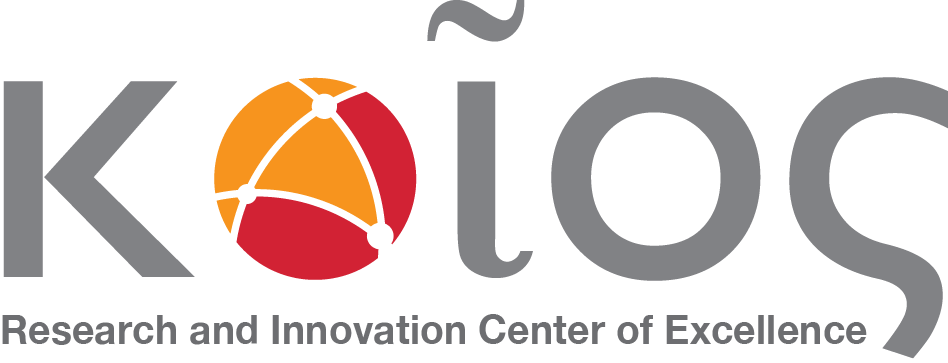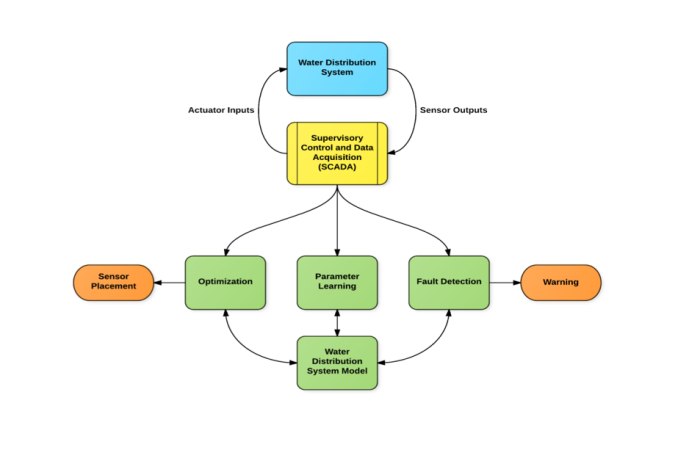The deterioration of drinking water quality due to a microbiological or chemical contamination can have a dramatic impact on everyday life, as well as the local economy. For example, an accidental microbiological contamination in 2007 of the Nokia water supply in Finland affected 10,000 consumers, leaving them without access to clean water for three months. The situation is especially severe in developing countries, where water contamination problems commonly result in hospitalizations, or even deaths, and have a major impact on the quality of life.
 For this reason, water utilities must monitor and control water quality following strict European and national regulations. However, due to the large-scale and complex nature of water distribution systems, water quality monitoring is sporadic while contamination events may take days before they are detected. It is therefore important to develop intelligent systems which facilitate continuous and effective monitoring of drinking water quality, for detecting contamination events and informing water suppliers as early as possible.
For this reason, water utilities must monitor and control water quality following strict European and national regulations. However, due to the large-scale and complex nature of water distribution systems, water quality monitoring is sporadic while contamination events may take days before they are detected. It is therefore important to develop intelligent systems which facilitate continuous and effective monitoring of drinking water quality, for detecting contamination events and informing water suppliers as early as possible.
To tackle this complex challenge, an intelligent system is being developed, capable of monitoring the quality of water and reliably detecting contamination events. If successful, the system could detect contamination events within a few hours rather than days using current practices.
The work is being undertaken as part of an European Research Council (ERC) Proof-of-Concept “SmartTap”. Within this project, model-based fault detection methodologies have been developed to be applied in urban water distribution systems, for detecting and isolating quality events (e.g. contamination) as well as hydraulic events (e.g. leakages) which may be linked to quality. In addition, new methodologies have been developed for determining the optimal locations to install sensors and to perform manual sampling, in order to minimize the impact risk of a possible contamination event.
The idea originated from the results of the ERC Advanced Grant “Fault-Adaptive” which was awarded to Prof. Marios Polycarpou, Director of the KIOS Research Center to research the ways to improve the performance of critical infrastructures, such as power, water, telecommunications and transportation systems. Within this project a set of novel tools and design methodologies have been developed for detecting unexpected events and faults in complex distributed dynamical critical infrastructure systems, in order to prevent significant disruption or complete system failures.
The ERC Proof-of-Concept “SmartTap” aims to bridge the gap between the theoretical research conducted in “Fault-Adaptive” and the market. For this purpose, KIOS collaborates with Aqualligence Limited, a Cyprus company whose role is to implement a smart cloud-based platform which is able to process large volumes of real-time data from sensors within the water system (e.g. measuring chlorine concentrations), analyze these data using algorithms and methodologies developed within the context of “Fault-Adaptive”, and provide the end users with warnings in the case a fault event has been detected. The project aims at demonstrating the developed system within the operational environment of a real water distribution network in Cyprus.



